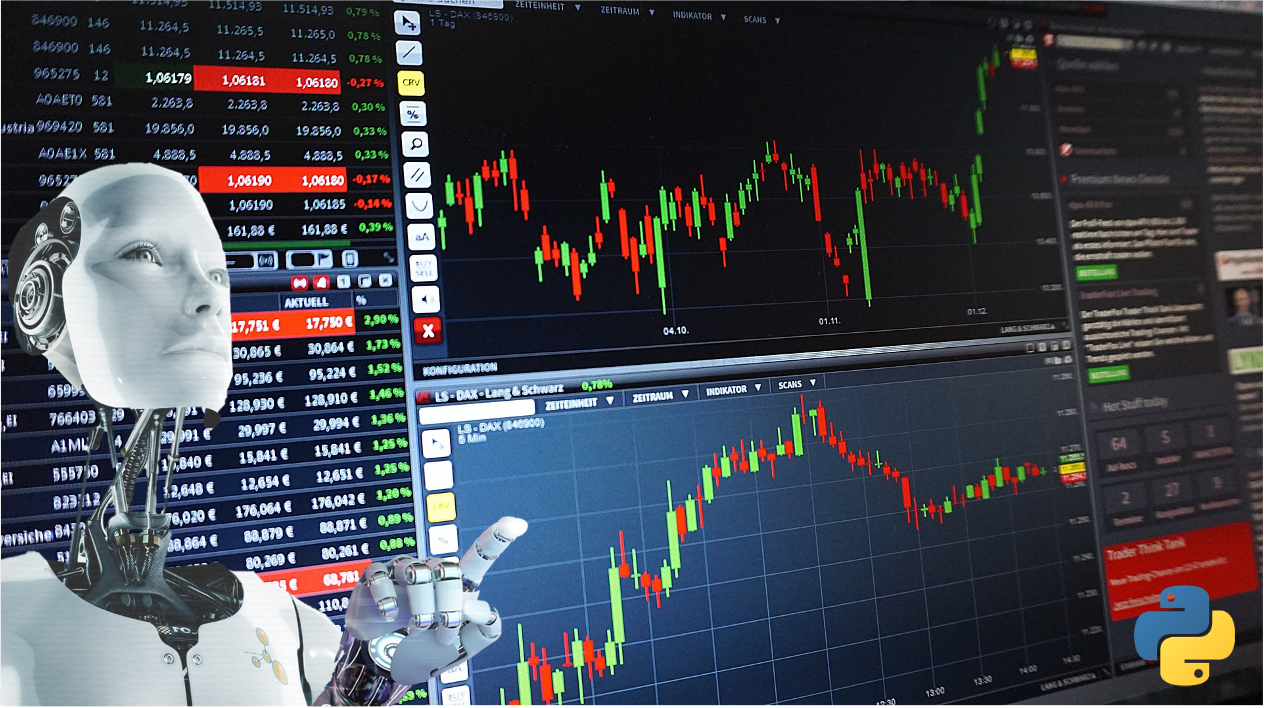Artificial Intelligence (AI) is redefining the landscape of stock trading, transforming traditional methods into highly sophisticated, data-driven strategies. By analyzing massive datasets in real time, AI-powered tools enable traders to make more informed decisions, reduce risks, and maximize returns. From automated algorithms to sentiment analysis, AI integrates technology with financial acumen to create strategies tailored to modern market demands. As AI continues to evolve, understanding its impact on stock trading is crucial for investors looking to stay competitive in an increasingly dynamic financial environment.
1. How AI Enhances Data Analysis in Trading
The backbone of any successful trading strategy is the ability to analyze data effectively. AI takes this capability to unprecedented levels, processing vast amounts of information at lightning speed.

Big Data and Predictive Insights
AI-powered platforms analyze market trends, company performance, and macroeconomic indicators, identifying patterns that human analysts might miss. For example:
- Pattern Recognition: AI models can spot recurring trends in price movements, helping traders anticipate shifts in the market.
- Forecasting Models: Machine learning algorithms use historical data to predict future price behaviors with remarkable accuracy.
Real-Time Analysis
AI tools provide traders with up-to-the-second updates, enabling quick adjustments to strategies. This immediacy is crucial in high-frequency trading, where milliseconds can make a difference in profitability.
2. Algorithmic Trading: Revolutionizing Execution

Algorithmic trading, or algo trading, is a prime example of AI’s influence on the stock market. By executing pre-programmed instructions based on predefined criteria, AI minimizes human error and maximizes efficiency.
Advantages of AI in Algorithmic Trading
- Speed and Precision: Algorithms execute trades faster than any human trader, ensuring optimal pricing.
- Reduced Emotional Bias: Automated systems make decisions based on data rather than emotions, improving consistency.
- Scalability: AI can manage and execute multiple trades simultaneously across various markets.
Customizable Strategies
AI allows for the development of highly customized trading strategies. Traders can set parameters based on risk tolerance, financial goals, and market conditions, ensuring tailored solutions.
3. Sentiment Analysis: Understanding Market Mood

AI’s ability to analyze qualitative data, such as news articles, social media posts, and earnings reports, has opened new dimensions in stock trading. Sentiment analysis helps investors gauge market sentiment and predict its impact on stock prices.
How Sentiment Analysis Works
- Natural Language Processing (NLP): AI systems use NLP to extract meaning from text, assessing whether sentiment is positive, negative, or neutral.
- Market Reaction Predictions: By understanding public and institutional sentiment, traders can anticipate reactions to events like product launches or regulatory changes.
Case Study: Impact of Social Media
Platforms like Twitter and Reddit often drive sudden market movements, as seen with the rise of meme stocks. AI tools equipped with sentiment analysis can detect these trends early, providing a competitive edge.
4. Risk Management and Portfolio Optimization
AI excels at identifying and mitigating risks, making it an invaluable asset for portfolio management. By assessing risk factors and optimizing asset allocation, AI ensures a balanced approach to investing.
Key Contributions of AI to Risk Management
- Volatility Monitoring: AI algorithms track market volatility in real time, allowing traders to adjust positions proactively.
- Stress Testing: Simulations predict how portfolios would perform under adverse conditions, enabling preemptive adjustments.
- Dynamic Rebalancing: AI tools continuously evaluate portfolio performance, ensuring alignment with investment goals.
By integrating AI into portfolio management, traders can achieve better diversification and enhanced returns.
5. Challenges and Ethical Considerations
While AI offers numerous benefits, its application in stock trading is not without challenges and ethical concerns.

Transparency and Accountability
AI models operate as “black boxes,” making it difficult to understand how decisions are made. This lack of transparency can be problematic, especially in high-stakes trading.
Market Manipulation Risks
The use of AI in trading has raised concerns about market manipulation. Rogue algorithms or unethical practices could disrupt markets and harm investors.
Regulatory Oversight
Governments and regulatory bodies are working to establish guidelines for AI in trading. Ensuring compliance with these regulations is essential for maintaining market integrity.
Conclusion: Harnessing AI for Smarter Trading
Artificial intelligence is revolutionizing stock trading strategies, offering unparalleled advantages in data analysis, execution, and risk management. By leveraging AI tools, traders can navigate complex markets with precision and confidence, unlocking new opportunities for growth. However, balancing innovation with ethical practices and regulatory compliance remains critical.
Are you ready to explore the potential of AI in your trading journey? Visit our website for in-depth insights, expert advice, and cutting-edge tools to help you succeed. Share your thoughts or questions in the comments—we’d love to hear from you!

Leave a Reply